What Conditions Initiate Dental Implant and What factors impact dental implant success?
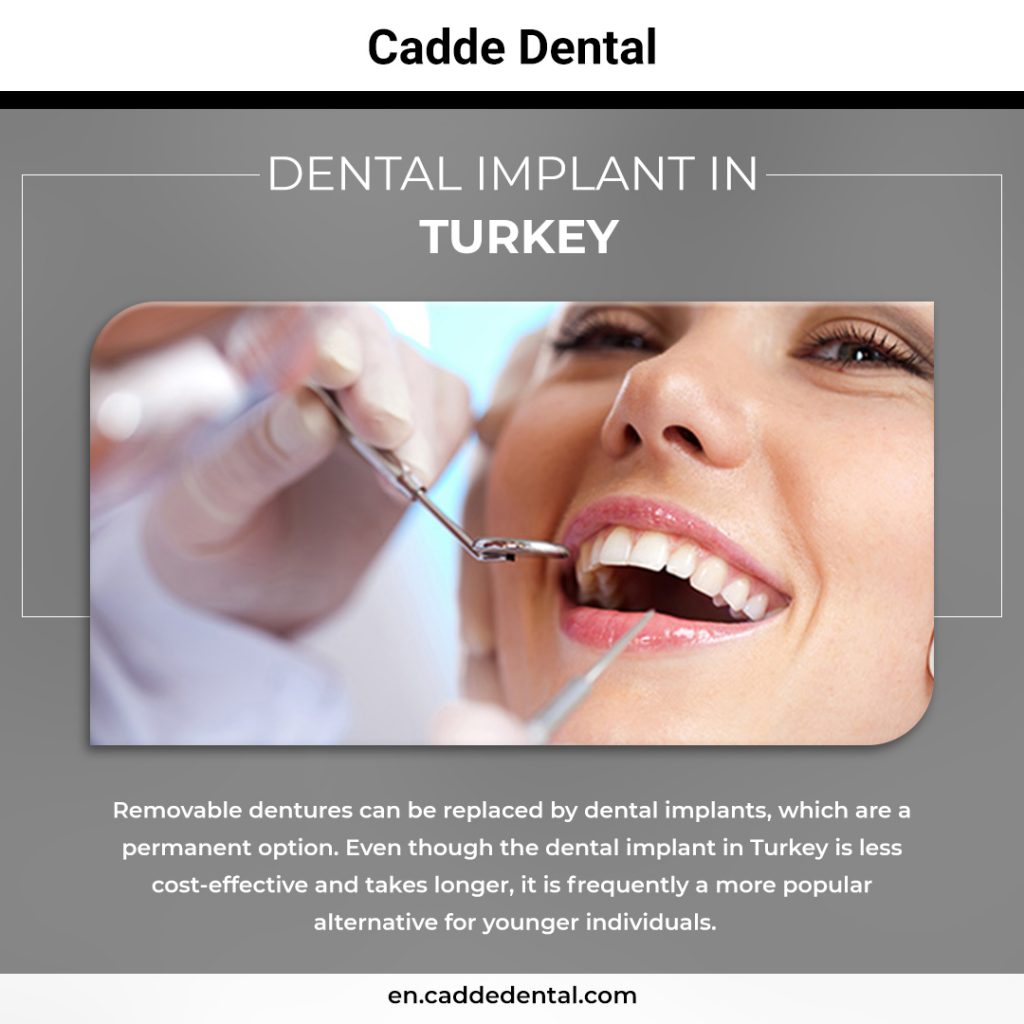
Removable dentures can be replaced by dental implants, which are a permanent option. Even though the dental implant in Turkey is less cost-effective and takes longer, it is frequently a more popular alternative for younger individuals. Dental implants provide several advantages over dentures, including the fact that they do not dislodge teeth, require less maintenance, and have a high rate of durability and success, frequently lasting a lifetime. Aside from that, dental implants preserve your jawbone from deterioration and help to avoid cavities. With all of the advantages of dental implants, many individuals wonder, “When should I get dental implants?” ’
Although there are several advantages to implants, you must evaluate your dental state and potential problems, as well as your objectives and personal preferences, before deciding on the best treatment option. The implant-retained dentures team discusses the most frequent dental issues that necessitate the use of dental implants.
5 Dental Situations When You Should Get Dental Implants
Missing Tooth
Teeth are essential for more than simply eating; they also play a role in speech formation. Missing teeth might make it challenging to understand what you’re saying, lowering your quality of life. There would be no problems if the lost tooth were in the back of your mouth. However, if the lost ones are on the front, it might damage your dental look and influence you in social settings like job interviews.
Cracked Teeth
When you participate in sports or exercise, you run the risk of suffering a bodily injury. An accident may have resulted in a fractured or cracked tooth. Often, treatment or filling can be used to fix it. As a result, you might not require a complete dental implant. However, the tooth’s structure is no longer intact in other situations, and your injured tooth will be removed from the gum. Cracked teeth might be a sign that it’s time for dental implants, depending on the degree.
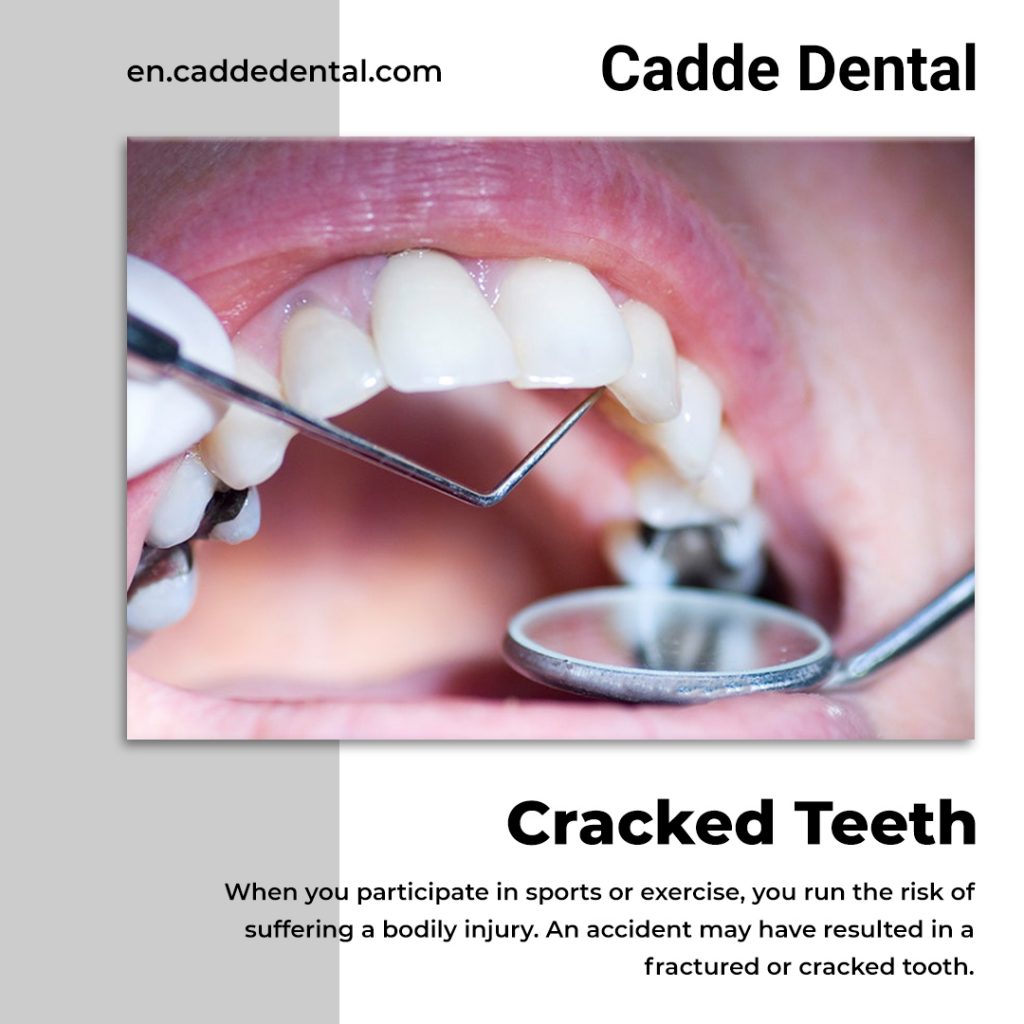
Loose Teeth or Visible Gaps Among Teeth
Teeth can move and become loose over time, resulting in space or a visible gap between them. A weakened jaw bone or a gum condition might cause this. The process remains undetected for a long time and ultimately loosens the teeth from the gums. If this is the case, you’ll need a comprehensive periodontal treatment to prevent additional tooth loss.
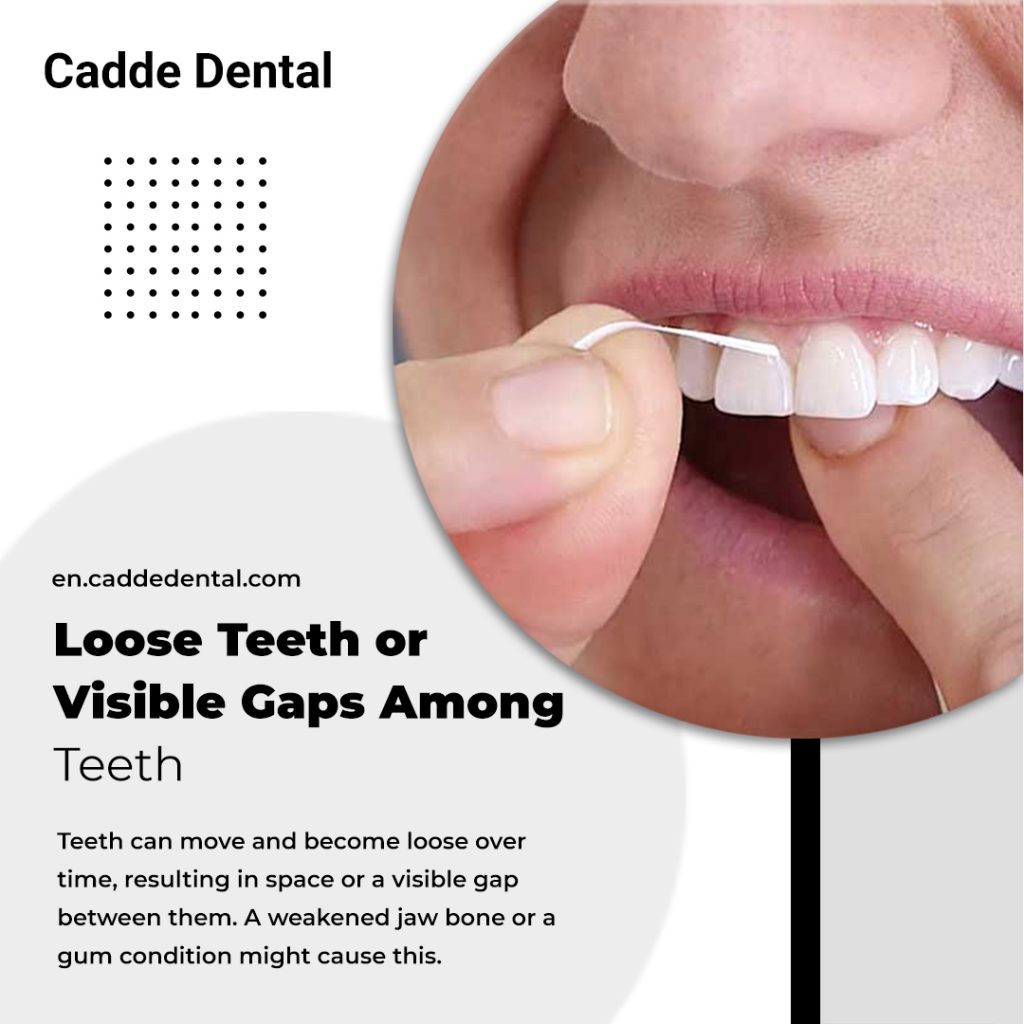
Tooth Decay
Tooth decay may be caused by a variety of things, including germs and specific diets. It might be induced by anything as essential as poor dental hygiene. Food gets trapped in between your teeth a lot when you’re eating. If the leftover food particles are not removed, plaque will most likely build all around your teeth. When bacteria in plaque are exposed to carbohydrates in the food you eat, they produce acids that destroy your tooth structure. As a result of this development, tooth decay develops, necessitating dental care.
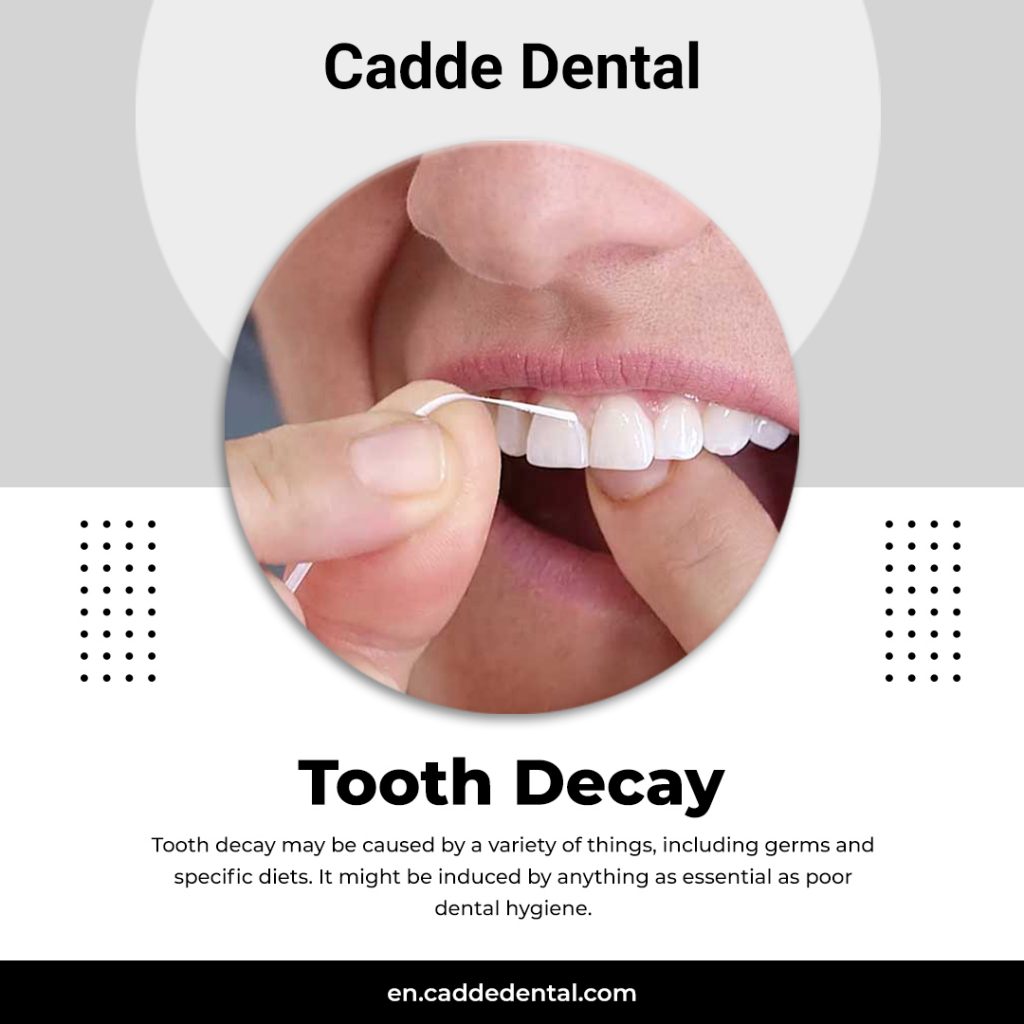
Gum Disease or Dental Deformities
Inflammation or swollen gums are signs of gingivitis in its early stages. In this condition, your gums bleed readily and more frequently. Gum disease is commonly accompanied by a weakened bond between the teeth and the gums, making chewing and speaking difficult.
Another scenario is when you have a genetic disease that impairs the development and function of your teeth from birth, leaving you with congenitally missing permanent teeth. Simple treatments such as brushing and flossing the teeth might help to alleviate the symptoms in the early stages. However, if the condition is incurable, Turkey Dental Implant is a preferable option since they provide healthy and functional teeth similar to natural teeth. Denture implants are highly suggested if the gums have deteriorated and can no longer support dental implants.
What Factors Impact Dental Implant Success?
Various factors can harm the success of a dental implant. These include:
Gum Disease
Dental implant surgery requires healthy gums, and you cannot undergo this operation if you have active gum disease. Gum disease is a kind of illness that affects the gums and jaw bone. An untreated infection near the implant might cause it to fail. Before receiving an implant, see a dentist to get gum disease treated.
Smoking
By limiting blood supply to the gums, smoking might potentially exacerbate the failure of dental implants by slowing the healing process. According to several studies, smokers have a 20% risk of their dental implants failing. Being a smoker does not preclude you from receiving a dental implant. However, if you quit smoking one week before your dental implant and don’t smoke for at least two months after the implant is placed, you may have a better outcome.
Inadequate Jaw Bone
Sufficient bone to sustain the implant is also required for a successful surgery. The surgeon will not be able to surgically place the implant in your jaw if there is insufficient healthy bone. Osteoporosis can lead to bone loss. When bone density diminishes, this disorder occurs. Fractures grow more likely when bones become more brittle. Gum disease that is severe might lead to bone degeneration in the mouth.
Medical Conditions
Your body recovers at a slower pace if you have an autoimmune sickness or illnesses like rheumatoid arthritis or diabetes, and dental implant failure is a possibility. Slow healing may impede osseointegration, the process by which the implant merges or integrates with your jaw bone. The use of certain medicines can also cause dental implant failure. As a result, it’s critical to discuss any drugs you’re presently taking with your oral surgeon (both prescription and over-the-counter).
Inadequate Dental Maintenance
After a dental implant, the capacity to maintain proper oral hygiene has an influence on the success rate. If you have restrictions that limit your range of motion or make it difficult to clean your teeth thoroughly, you are not a good candidate for a dental implant.
An Amateur Surgeon
If you have an unskilled surgeon, there is a risk of dental implant failure. Your dentist may recommend an oral surgeon, but you are free to choose one on your own. When it comes to tooth replacement, an expert surgeon understands how many implants to utilise. This is critical because too few implants can put excessive stress on the implant, causing it to fail. Iatrogenic trauma, which damages the periodontal tissue caused by a dentist’s action, can also be avoided by working with a qualified surgeon. Select a surgeon who has a lot of experience. Allow them to go through the procedure and recovery plan with you.
What are the signs of dental implant failure?
The following are symptoms of a problem if you have early or late-stage dental implant failure:
- Trouble in Chewing
- Gum Swelling
- Gum Recession
- Raised Swelling
- Loosening of an Implant or a Replaced Tooth
- Critical Pain or Discomfort
Preventive care
Even though some dental implant failures are unavoidable, there are actions you may take to decrease your chances of failing:
- Maintain the health of your dental implants. Brush, floss, and use mouthwash daily.
- Every six months, see a dentist.
- Quit smoking.
- Enhance your calcium consumption to help your bones stay strong. Consume calcium-rich foods such as milk, yoghurt, broccoli, oranges, and cheese, or take a supplement.
- To cure bruxism, consult your dentist about a mouth guard (teeth grinding).
- After an implant operation, don’t have a tooth replacement right afterwards.
- Stop practises that are harmful to your teeth (eating ice and candy)
If you’ve been debating whether or not to have dental implants or if you’re suffering from any of these symptoms, it’s time to schedule an appointment with a dental prosthetist at our best implant clinic in Turkey. It might damage your capacity to perform on a daily basis if ignored. Maintaining oral hygiene is critical even after treatment to avoid future issues. You may reduce the risk of tooth decay by practising proper oral hygiene. A visit to your dentist once every six months may also be beneficial in detecting any problems as early as possible.
In our clinic in Turkey, Cadde Dental offers the Best smile design in Turkey for dental implant costs. Implants can be used in either the upper or lower jaw. Turkey’s implant production has met international standards and satisfies all of the demands of dentists for implant-supported tooth replacement. New brands are introduced to the market every year, and Turkey has begun to sell the implants it manufactures to other nations. Turkish implants are better than several implant brands in terms of development. So, if you are wondering, Where is the best quality implant treatment done? Our clinic has effectively implemented the therapy. In this approach, implant therapy becomes a more efficient procedure. Different jaw forms and materials utilised in practice exhibit practical differences. Our dental practice in Turkey no longer has any outstanding dental issues.
Recent Posts
- Learn Everything About The Treatment Procedure of Laminated Teeth
- Signs You Should Notice and Get Your Implants Done – Full Dental Implants Turkey
- All About Dental Braces and What Should You Know Before Getting
- Learn About The Importance and Process of Interdental Cleaning
- How Sugar Can Harm Your Oral Health and How To Deal With It?
Categories
- Aesthetic Zirconium Coating
- Best Dental Clinic in Turkey
- Blog
- Dental Bonding Treatment
- dental implant in Turkey
- Dental Treatment in Turkey
- Full Mouth Dental Implants Cost Turkey
- Full mouth Veneers Cost in Turkey
- General
- Hollywood smile in Antalya
- Hollywood Smile Price in Turkey
- Hollywood smile prices
- Hollywood Smile Treatment
- Izmir Implant Treatment
- Laminated Teeth Application
- Laminated Tooth London
- smile aesthetic London
- Smile Aesthetics in Turkey
- Smile Makeover Turkey
- teeth whitening procedure
- Teeth Whitening Treatment in Turkey
- Teeth Whitening Treatment in Turkey
- Turkey Implant Prices
- Wisdom Tooth Extraction Procedure
- Zirconia Dental Implants
- Zirconium Crowns Turkey
- Zirconium Teeth London
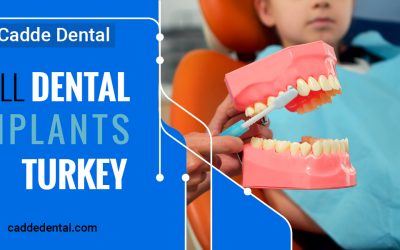


Recent Comments